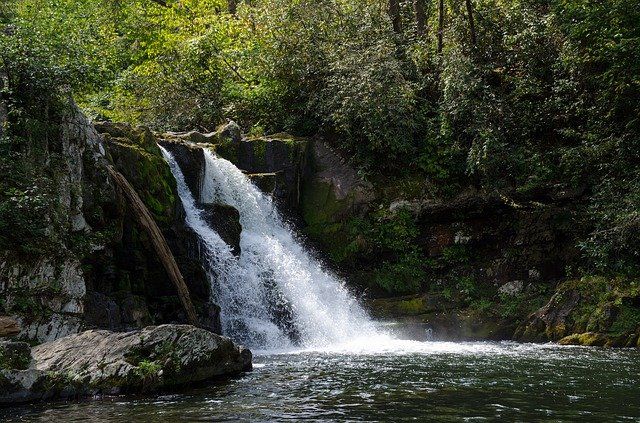‘For, behold, I create new heavens and a new earth: and the former shall not be remembered, nor come into mind. But be glad and rejoice for ever in that which I create: for, behold, I create Jerusalem a rejoicing, and her people a joy. And I will rejoice in Jerusalem, and joy in my people: and the voice of weeping shall be no more heard in her, nor the voice of crying’ (Isaiah 65:17-19).
This prophecy, like most of what is written in these last chapters of Isaiah, will have its ultimate and complete fulfilment when Christ comes again at the end of the world.
A day is coming when the Son of God will step forth from his mighty throne, lift his hand to heaven, and declare that time shall be no more.
Once he has finished all that he agreed to do, as our Surety in the covenant of grace, the One who occupies the throne of glory will declare: ‘It is done … Behold, I make all things new!’
But that will be only the last of four great creations. I want to show you four works of creation ascribed to our God in Holy Scripture.
The first great creation
Creation is God’s work. Creation is making something out of nothing. Strictly speaking, for something to be called a creation it must have been formed out of nothing. That is exactly what God does.
He makes that which will praise him and show forth his great glory out of nothing. Let us begin at the beginning, Genesis 1:1: ‘In the beginning God created the heaven and the earth’.

The creation was so fair that when the Lord looked upon all that he had made, with man as the crown of his handiwork, he said: ‘It is very good’. But it did not remain that way for very long.
Man, who should have been the glory of the creation, fell into sin, and by his fall our father Adam brought the curse of God upon the very earth from which he had been formed (Genesis 3:17-19).
Yet, even in this sin-cursed earth, the finger of God is so evident that the unbelieving are without excuse before him. ‘For the wrath of God is revealed from heaven against all ungodliness and unrighteousness of men, who hold the truth in unrighteous-ness. Because that which may be known of God is manifest in them, for God has shown it to them.
‘For the invisible things of him from the creation of the world are clearly seen, being understood by the things that are made, even his eternal power and Godhead; so that they are without excuse’ (Romans 1:18-20).
Paradise
Even now, it is altogether proper for us to rejoice in the beauty, splendour, and grandeur of God’s creation. Let no one misunderstand me. I have no use for the frog-kissing and tree-hugging of those who have returned to the ancient pagan worship of mother earth!
Yet we must never forget that this earth is God’s creation. He created it for the benefit and service of his people, and the only thing wrong with it is what sin has done to it.
One day soon, as we shall see, God will remove from his creation both sin and its consequences. We simply cannot imagine what the earth will be like then. It will be the total restoration of paradise.

God’s creation in the beginning was very good, and it still is. It is immeasurably superior to anything man has made in his pigmy efforts to rival the Almighty.
This world was created by our God to be the stage upon which he would work out the redemption of his people.
Restoration
I recognise that the Lord Jesus Christ, in his great work of redemption, atoned specifically for the sins of God’s elect. There is no sense in which it can be said that the Son of God shed his blood and died to redeem, save and justify all men.
Those for whom Christ made atonement must and shall be saved. The very justice of God demands it. Salvation without satisfaction, or satisfaction without salvation — either would violate God’s law and justice.
The gospel proclaims salvation to all who believe on the Lord Jesus Christ as the sure result of the satisfaction he has made.
Yet, the Word of God plainly teaches that Christ came not only to save God’s elect, by blood atonement and almighty grace, but also to restore God’s creation from the ruin it suffered as a result of Adam’s transgression.
It is a part of our Saviour’s purpose, as our Mediator, to restore creation, and to do so to God’s glory and the everlasting benefit of his people (Romans 8:21). There is a day coming when our God shall indeed make all things new.
The work of the new creation has already begun. What Isaiah describes will be the climactic conclusion to God’s unfolding drama of redemption. There will be, literally, a new creation — but that new creation is already under way.

In fact, through his eternal plan of redemption, God began to ‘make all things new’ even before the slime of the serpent defiled his original creation.
The second great creation
Next, I want to turn to Jeremiah 31:22. ‘How long wilt thou go about, O thou backsliding daughter? for the Lord hath created a new thing in the earth; a woman shall compass a man’.
In Jeremiah’s day the Jews greatly neglected the Word and ordinances of God. They were compared to a backsliding heifer. They would not return to the Lord.
Nevertheless, in this passage the Lord God makes a prophecy by which he would draw them to himself.
He says: ‘The Lord hath created a new thing in the earth, a woman shall compass a man’. The incarnation of Christ is here described as a ‘new thing’ created by God in the earth.
The Lord Jesus Christ, the Son of God, the Messiah, our Redeemer, is described as a man. He must be a man, else he could not suffer for the sins of men. He must also be the God-man, a man of infinite worth and merit, else he could never satisfy the law and justice of God for the sins of his people.
This mighty Man, Jesus Christ, is Jehovah’s own fellow, his equal, one with him; for this Man is himself God. ‘For in him dwelleth all the fulness of the Godhead bodily’ (Colossians 2:9).
An extraordinary thing
This great, almighty God-man, our Saviour, was born of a virgin. He was conceived in the womb of a virgin by the power of God the Holy Spirit (Isaiah 7:14; 9:6-9; Luke 1:26-35).
Our Saviour must also be a Man who is the seed of woman. He must have no taint of Adam’s sin and corruption upon him. Otherwise, he would not be fit to be our Redeemer (Genesis 3:15; Galatians 6:4-5).
This is said to be a new, unheard of, extraordinary thing, a creation, a work of almighty power, and so it was! For God had never before clothed himself with human flesh.
The human body and soul of our Lord Jesus Christ were prepared by God the Holy Spirit in the virgin’s womb to be a sin-offering acceptable to God (Hebrews 10:1-10). Christ’s human body was created by God to be an atoning sacrifice for the sins of his elect.
The incarnation of Christ, therefore, was God’s second great work of creation, and one without which the third and fourth creations could not have taken place. We shall consider what they are next month.




